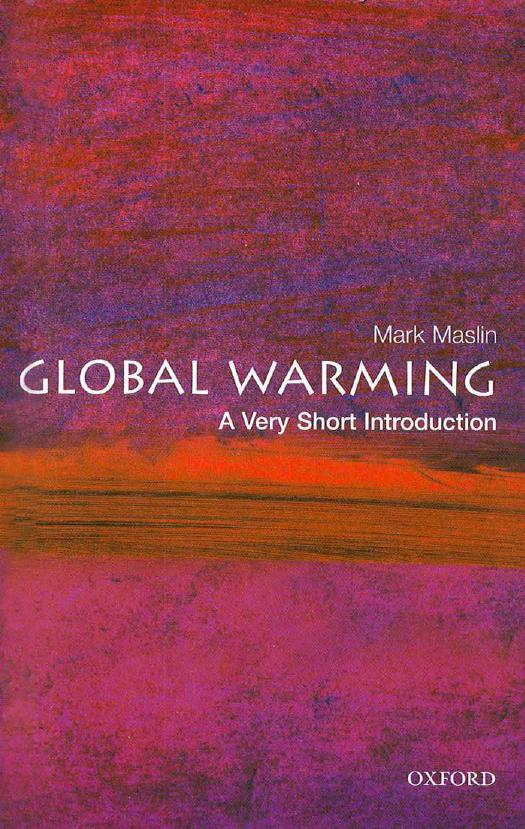Global Warming: A Very Short Introduction by Mark Maslin

Author:Mark Maslin [Maslin, Mark]
Language: eng
Format: epub, mobi, pdf
Tags: Science, Earth sciences, Geography, nature, Environmental Conservation & Protection
ISBN: 9780192840974
Google: AcP_s7ON0kYC
Publisher: Oxford University Press, UK
Published: 2004-11-25T18:30:01.194365+00:00
26. Flooding of Bangladesh in 1998. These scenes could be more common with sea-level rise and heavier monsoons
from the delta for agriculture and drinking water. In the 1980s, 100,000 tube wells and 20,000 deep wells were sunk, increasing the freshwater extraction sixfold. Both these projects are essential to improving the quality of life for people in this region but have produced a subsidence rate of up to 2.5 centimetres per year, one of the highest rates in the world. Using estimates of subsidence rate and global warming sea-level rise, the World Bank has estimated that by the end of the 21st century the relative sea level in Bangladesh could rise by as much as 1.8 metres. In a worst-case scenario they estimated that this would result in a loss of up to 16% of land, supporting 13% of the population, and producing 12% of the current gross domestic product (GDP). Unfortunately, this scenario does not take any account of the devastation of the mangrove forest and the associated fisheries. Moreover, increased Fu
landward intrusions of salt water would further damage water ture im
quality and agriculture. This is a worst-case scenario and the pac
greater part of the relative sea-level rise is not caused by global ts of global w
warming.
Another example of a threatened coastline is the Nile Delta, armin
which is one of the oldest intensely cultivated areas on Earth. It is very heavily populated, with population densities up to 1,600 g
inhabitants per square kilometre. Deserts surround the low-lying, fertile floodplains. Only 2.5% of Egyptâs land area, the Nile Delta and the Nile valley, are suitable for intensive agriculture. Most of a 50 km wide land strip along the coast is less than 2 m above sea level and is only protected from flooding by a 1â10 km wide coastal sand belt, shaped by discharge of the Rosetta and Damietta branches of the Nile. Erosion of the protective sand belt is a serious problem and has accelerated since the construction of the Aswan dam in the south of Egypt. A rising sea level would destroy weak parts of the sand belt, which are essential for the protection of lagoons and the low-lying reclaimed lands. These impacts could be very serious. About one-third of Egyptâs fish catches are made in the lagoons, and sea-level rise would change the water quality and affect most freshwater fish; valuable 87
agricultural land would be inundated; vital, low-lying installations in Alexandria and Port Said would be threatened; recreational tourism beach facilities would be endangered; and essential groundwater would be salinated. All these effects are preventable, as dykes and protective measures would stop the worst flooding up to a 50 cm sea-level rise. However, there may still be serious groundwater salination and the impact of increasing wave action would be serious.
The most important influence on the impact of sea-level rise on coastal regions is the rate of change. At the moment the predicted rise of about 50 cm in the next hundred years can be dealt with if there is the economic foresight to plan for the protection and adaptation of coastal regions.
Download
Global Warming: A Very Short Introduction by Mark Maslin.mobi
Global Warming: A Very Short Introduction by Mark Maslin.pdf
This site does not store any files on its server. We only index and link to content provided by other sites. Please contact the content providers to delete copyright contents if any and email us, we'll remove relevant links or contents immediately.
| Anthropology | Archaeology |
| Philosophy | Politics & Government |
| Social Sciences | Sociology |
| Women's Studies |
Born to Run: by Christopher McDougall(7127)
The Leavers by Lisa Ko(6948)
iGen by Jean M. Twenge(5416)
Sapiens by Yuval Noah Harari(5372)
Spare by Prince Harry The Duke of Sussex(5197)
The Kite Runner by Khaled Hosseini(5180)
Machine Learning at Scale with H2O by Gregory Keys | David Whiting(4313)
Bullshit Jobs by David Graeber(4191)
Never by Ken Follett(3957)
Goodbye Paradise(3810)
Livewired by David Eagleman(3775)
Fairy Tale by Stephen King(3399)
A Dictionary of Sociology by Unknown(3085)
Harry Potter 4 - Harry Potter and The Goblet of Fire by J.K.Rowling(3074)
The Social Psychology of Inequality by Unknown(3031)
The Club by A.L. Brooks(2926)
Will by Will Smith(2920)
0041152001443424520 .pdf by Unknown(2846)
People of the Earth: An Introduction to World Prehistory by Dr. Brian Fagan & Nadia Durrani(2739)
